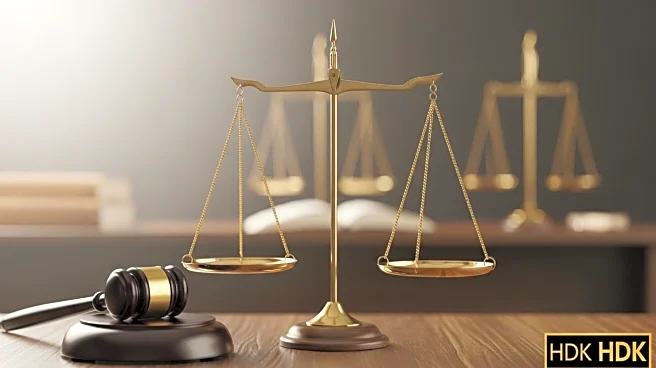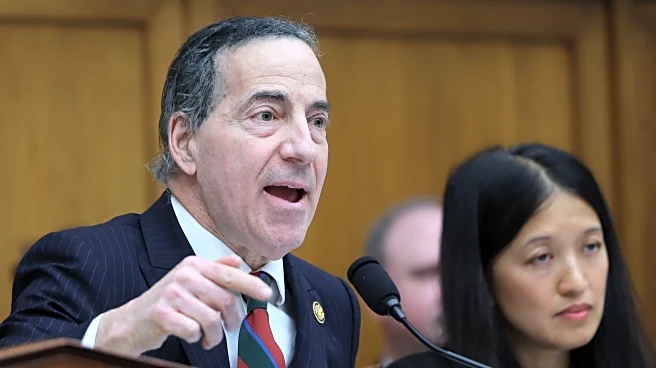What's Happening?
The Supreme Court has denied Alex Jones' appeal against a $1.4 billion judgment related to his false claims about the Sandy Hook Elementary School shooting. Jones, a conspiracy theorist, was ordered to pay damages to the families of the victims after he repeatedly asserted that the 2012 shooting was a hoax. This decision by the Supreme Court effectively upholds the previous ruling, which found Jones liable for defamation and emotional distress caused to the families. The judgment is one of the largest of its kind, reflecting the severity of the harm caused by Jones' statements.
Why It's Important?
The Supreme Court's decision to reject Alex Jones' appeal is significant as it reinforces the accountability of individuals who spread false information, particularly in cases involving tragic events. This ruling serves as a precedent for similar defamation cases, emphasizing the legal consequences of spreading harmful conspiracy theories. The decision is a victory for the Sandy Hook families, who have endured years of harassment and distress due to Jones' claims. It also highlights the broader societal impact of misinformation and the importance of upholding truth and justice in public discourse.
What's Next?
With the Supreme Court's decision, Alex Jones is expected to comply with the judgment and pay the damages to the Sandy Hook families. This may lead to further legal and financial challenges for Jones, as he navigates the implications of the ruling. The case may also prompt discussions among lawmakers and legal experts about the need for stricter regulations on misinformation and the protection of victims' rights in similar situations. Additionally, media platforms may face increased pressure to address the spread of false information and conspiracy theories.
Beyond the Headlines
The ruling against Alex Jones could have long-term implications for the media landscape, particularly concerning the responsibilities of broadcasters and online platforms in curbing misinformation. It raises ethical questions about freedom of speech versus the harm caused by false narratives. The case may influence future legal standards for defamation and emotional distress claims, potentially leading to more robust protections for victims of misinformation. Furthermore, it underscores the cultural shift towards demanding accountability from public figures who exploit tragedies for personal gain.










